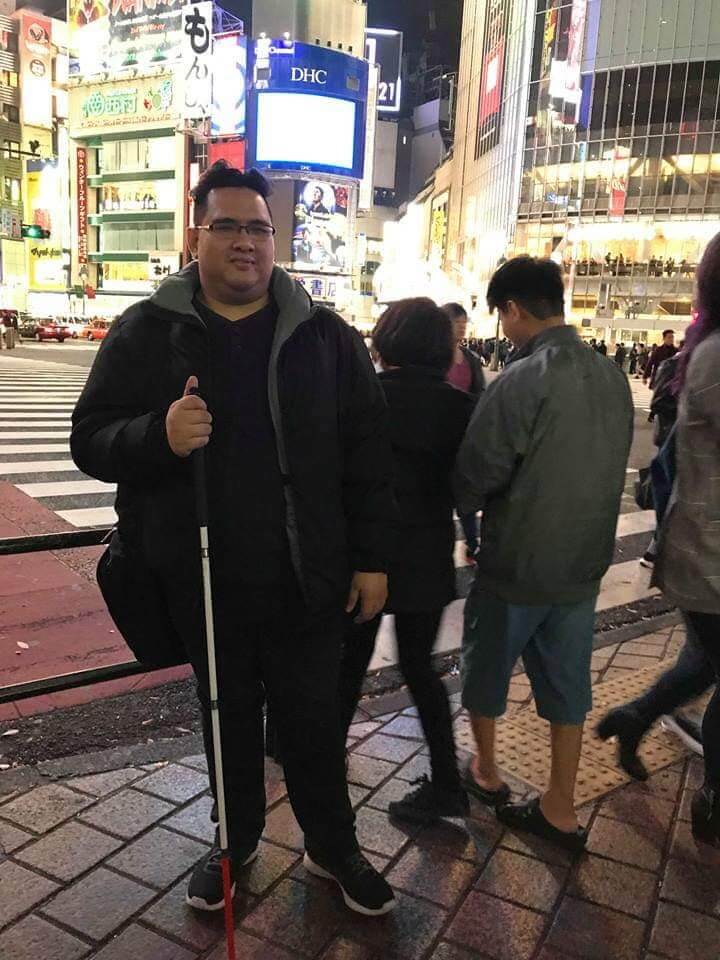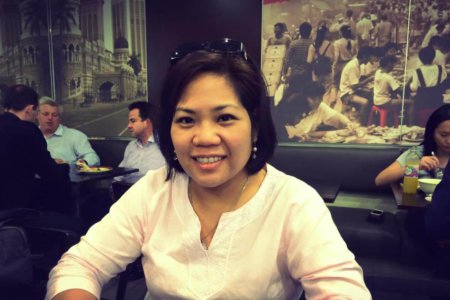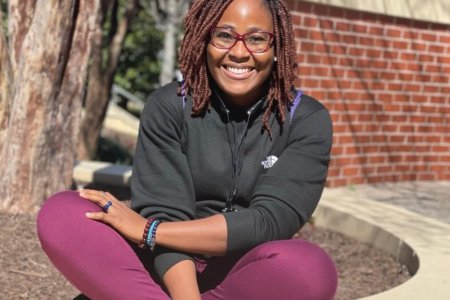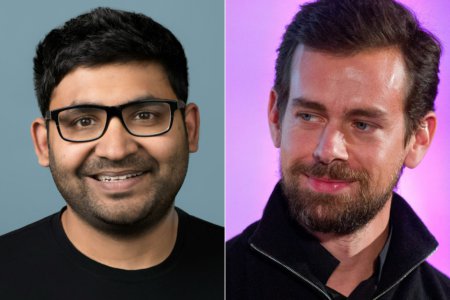
International Day of Persons with Disabilities is celebrated on December 3 every year. This year (2021)’s theme is “Leadership and participation of persons with disabilities toward an inclusive, accessible, and sustainable post-COVID-19 world” – an apt one when COVID-19 has changed our learning experience forever. The Internet connection has become an all-important link to daily learning, but for some communities without internet, their physical classroom learning has to be put on halt. Other individuals who can stay connected now have to grapple with new technology advances or communication methods which may not be entirely disabled-friendly.
Yet, the disabled people are known for being resilient. In living with disability, they often find ways to be resourceful to lead their lives as normally as possible. More so for students with disabilities, when not all educational institutions are always fully accommodating or understanding, their personal desire to excel still triumphs over this hurdle.
For Erick Marco G. Ramos from the Philippines, becoming gradually blind has not stopped him from enjoying life to the fullest. In fact, he has earned all his university degrees on full scholarships – including being the world’s first blind exchange programme grantee, and getting selected for his current PhD scholarship where he is now studying in the US.
We speak to Ramos about his PhD study experience and why he believes the World Disability Day helps make disability more visible:

Ramos believes in living life to the fullest including travelling wherever he can. Source: Erick Marco G. Ramos
Hi Marco! Can you share more about yourself?
I am Erick Marco G. Ramos from Manila, the Philippines. I am currently based in Indiana, Pennsylvania, the US.
I was born prematurely. I suffered from Retinopathy of Prematurity (ROP) which caused blindness in my right eye by age three. The vision in my left had gradual progressive vision loss.
I became totally blind in 2007; I had to adjust to vision loss. I couldn’t do the things I used to do before. I had to re-learn some skills like travelling by myself, reading Braille and using devices with screen readers.
Did you face any challenges in terms of studies and work?
People are not always familiar with providing reasonable accommodations for disabled people across the board, from basic education all the way to graduate education, and in the workplace.
This makes life more difficult than it could otherwise be. When faced with people, organisations, or institutions with no solid disability support service, disabled people like me are often rejected or declined from entering these environments.
When we are allowed to, we have to learn to communicate needs really effectively and make an effort to make sure the reasonable accommodations are in place.
Sometimes it works, but many times, they don’t. This makes the school or work environment difficult to navigate.
What do you think would be your most trusted/useful disability aid(s) in your life, and why?
My computer with a screen reader and my phone with an optical character recognition app and a crowdsourcing app.
I do all my work on a computer. It is efficient and fast. The output is in a format that most people are able to access. This proved useful when the pandemic hit and everything moved online. I don’t know what I would do without my trusty computer.
For the OCR, I invested in a lifetime subscription to a popular optical character recognition app for the blind called KNFB Reader. Using my phone’s rear camera, I can take photos of printed books and most other reading materials and my phone reads out loud and allows me to save it in a text format for use later. As a graduate student, this is really useful. However, it also makes daily life like reading labels much simpler.
For the crowd sourcing app, I use Be My Eyes which is an app that connects blind people with sighted volunteers via the internet and the camera on the phone. A sighted person can help a blind person accomplish quick tasks that would otherwise be difficult. For example, my apartment’s centralised HVAC system has a digital display with no accessibility features. I often go on Be My Eyes to get help when I need to adjust the thermostat.
I understand you are currently doing your PhD study in the US on a Fulbright scholarship. Can you tell me more about your experience being selected for this scholarship, and doing this PhD study? Have you also been on other scholarships before, and how is this PhD scholarship experience different from the other ones?
The Fulbright Foreign Student Programme is the flagship academic exchange programme of the U.S. Government. It is administered by the U.S. Department of State’s Bureau of Educational and Cultural Affairs. It is administered from the Philippines by the Philippine American Education Foundation, the Fulbright Commission in the Philippines.
I became familiar with the Fulbright Programme because I went on another U.S. D.O.S sponsored programme in 2010 which is also administered by Fulbright Philippines. I went on the Global Undergraduate Exchange Programme for the fall term of 2010.
I was the world’s first totally blind grantee for the programme. I went to the University of Southern Indiana in Evansville. I took courses in the English Studies programme. I told myself, as soon as I am eligible to apply for a Fulbright grant, I will do so and I did in 2018 which is for the 2020-2021 intake.
I also studied in Kuala Lumpur at the University of Malaya for my master’s. It was fully-funded by the ASEAN Institute on Disability and Public Policy and later by the ASEAN University Network Disability and Public Policy Network (AUNDPP-Net).
During the programme, I realised I could merge my interest in Literature and Media and Disability studies so I became interested in Critical Disability Studies and Post-disability Theory, and I knew I wanted to go on a PhD programme in English, Cultural Studies or a related field in the Humanities.
I did not want to work and study at the same time so the only option for me was to look for a fully-funded programme. Also, being disabled, I wanted to study in universities with solid disability support programmes and sad to say, these universities are outside of the Philippines.
Since I am familiar with the Fulbright Programme being a recipient of another Fulbright Philippines scholarship offering, the Fulbright Foreign Student Programme is a logical choice. My initial idea was to try for the 2020-2021 season just to know what the process is like — I was certain I would not get in. This was supposed to be my trial application.
Luckily, I was short-listed in June of 2019 and became one of eleven Filipino grantees in June of 2020. I was supposed to leave for the U.S. in August of 2020 but because of the pandemic and all the travel restrictions, I was only able to travel to the U.S. in January of 2021. I had to attend the entire fall 2020 semester remotely from Manila.
I am now in my second year in the PhD in English: Literature and Criticism programme at Indiana University of Pennsylvania (IUP). My research is in the intersection of Literature, Popular Culture and Media, and Disability Studies.
To be particular, I am looking at how disabled people create various context-specific disabled embodiments as seen in the work of disabled writers and artists.
How is the Fulbright Programme different? Well, all my scholarships are fully-funded.
However, the Fulbright Foreign Student Programme as well as the family of Fulbright Programmes offers grantees a wide network of scholars and alumni. All the various enrichment activities like exclusive workshops and seminars both in person and online are unique to the Fulbright network I think.
We get to attend talks by the world’s leading experts in different disciplines. Many of these resource persons are Fulbrighters themselves.
Why this PhD study at this particular university?
Fulbright matches students with universities. Since I have a strong Education background, they sent me to IUP. The University, being a former normal school, has a strong teaching component in most of its academic programmes, mine included.
I teach in a pre-service teacher-training programme in the Philippine Normal University, the Country’s National Center for Teacher Education so IUP was a good match.
As an international student with disability in the US, can you share three biggest challenges of doing your PhD study there?
First, going abroad during a global pandemic is difficult. I might be insane for doing this during a time like the present.
For instance, I had to attend the whole fall 2020 semester from back home. I have to wake up at 3:00 AM to attend my classes. Disabled or not, that is a challenge.
In addition, being away from people is a barrier. I am the kind of person who thrives in discussions with classmates before and after class. Zoom classes just do not have the same collegial environment since people log on and off instantly. Even when I was already in Pennsylvania for the spring term, all of our courses were still purely online. Adjusting to a fully virtual classroom environment takes some getting used to.
I also have to make sure all the assistive devices I am using work well with all of the conferencing software and learning management systems the school is using. That is an extra step I have to work on with my disability support adviser.
Second, I have to live independently and off campus. I keep my own apartment and do everything for myself. That is on top of the heavy coursework in the PhD level. Again, disability aside, that is already tough. But as a disabled person, I take additional steps to make sure I do everything I am supposed to in a timely manner. I have to travel on my own too and sometimes, it involves walking in heavy snow.
As a blind person, we depend a lot on environmental cues on the ground like curbs or grass-lines. In the snow, all of those cues disappear. I have to rely on another set of cues in the environment to orient myself when I am walking around on my own.
Finally, as an international student, I am away from my family and friends. That is already tough under normal circumstances but during a global pandemic, it is even more difficult.
Also, even though this is the third time I have studied abroad, every place is different. People are different. One has to build relationships with people to make the experience worthwhile. As an international student, I have to exert the effort to form personal and professional relationships with classmates. As an introvert, this is not always easy.
In addition, as a disabled person, I have to exert even more effort. Luckily, I am with a good set of classmates and friends. We work well together and also enjoy each other’s company outside of class.
That sounds challenging! But I believe there would have been some great memories of doing this PhD study despite your disability — please share.
Well, I did mention attending classes remotely from Manila. That was definitely memorable.
Also, in one of my courses, I have to produce a podcast. I have to use various applications to record and edit my podcast. I had to do it from back home so I didn’t have access to the professional production studio on campus. Again, I had to make sure all of the applications are screen reader accessible. My project turned out great, which was really cool too.
Also, I have friends from all over the world and to me, that is the advantage of studying abroad. You’ll get to meet people from different cultures, from all walks of life. It enriches your view of the world.
This is not part of the PhD but I have also had the chance to travel with my friends. Aside from school, travelling can add on to the interesting experiences. I’m looking forward to when I can travel without worrying about the pandemic. But for now, I would rather be on the safe side. A global pandemic still rages on after all.
Would this PhD study have benefitted you in any way with regard to your professional work/career/network and why/why not?
I don’t really know yet since I am still knee-deep in the programme. Whatever career benefits there may be are still left to be seen.
However, in terms of networking, I did mention about the wide Fulbright network. That really helps. Getting to know people in my field and across disciplines is really an advantage I believe.
If you are given a chance to do this PhD study in the Philippines instead of overseas, would you want to do it, and why/why not?
If there was a university with a solid disability support programme, I think I would consider it at least. But it has always been my plan to go abroad for school so I think I would still choose to do it even if I could do it from back home.
I always joke that I have the study-abroad bug and it is half meant. I really enjoyed my study abroad experiences so far.
Would you have any special piece of advice for future PhD applicants with disabilities?
My advice to disabled and non-disabled applicants is the same. If one is applying to a competitive study-abroad scholarship programme, they have to know who they are personally and professionally. They have at least an initial idea of their research trajectory and the way their ideas would contribute to the discipline.
For disabled people specifically, I would also advise them to do their homework. Look through various scholarship and academic programmes. Many are out there.
Sometimes, it is only a matter of taking a risk. Sometimes it works; sometimes it doesn’t. And when it doesn’t work out, learn from it and try again.
Your advice is helpful! As you know, International Day of Persons with Disabilities is coming up. Can you share your thoughts about this event with us, and what do you hope for the future?
As I have mentioned, my research marries my personal and professional interests and International Day of Persons with Disabilities is right in the pocket.
International Day of Persons with Disabilities (IDPWD) is an important event for disability visibility. We are out there and we have always been. We participate in society in various ways. We are researchers, scholars, teachers, professionals, artists, creatives, and our work reflects the disabled experience. International Day of Persons with Disabilities is a great statement to the diversity within the disability community.
For IDPWD, I would like to see a world where diversity becomes the norm. I’d like to see a world where people from intersectional backgrounds live freely and productively.
I want to live in a world where various marginalised groups including the disabled, women, LGBTQ people, indigenous peoples, racial minorities, and other groups work together to forward human rights as a whole. And if it is not too much to ask, I would like to eventually live in a world where we do not have to fight for our rights because they are acknowledged and valued.
I know this is a moonshot but I can hope for it. Maybe not in my lifetime but in the future perhaps.
Finally, what do you wish people knew more about you besides and about your disability?
I am a writer and a researcher and my disability shapes my experiences and inevitably my work. That is a given.
However, people are often afraid to talk about other things. Disability becomes the default topic. Although I don’t mind talking about disability, I like discussing other topics too. I like talking about books, music and yes, even television shows and films.










